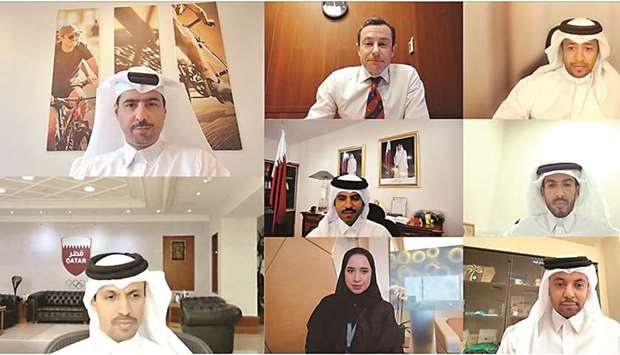The number of gyms in Qatar has increased to more than 500 from 86 in 2014 and a large number of athletes take nutritional supplements without proper awareness about their components or the best way to use them, Abdul Rahman al-Dossari, adviser to the Minister of Culture and Sports, has said.
He was addressing the first meeting of the Working Group on the Safe Use of Sports Nutrition Supplements, held online the other day, local Arabic daily Arrayah reported. The body comprises representatives from sports and health sectors and the Ministry of Culture and Sports (MoCS).
The meeting, held via video conferencing, was intended to assess the risks of using sports nutritional supplements by athletes and sports enthusiasts in the country. Al-Dossari observed that the importance of this project is based on the indicators of an increase in the number of gyms and users of nutritional supplements. Improper use of such materials is a cause of concern for the health authorities, as these practices may have negative effects on the body when consumed incorrectly. “The ministry supports this project, tries to raise awareness about the risks of nutritional supplements and want to put regulations and a law to control their circulation and sale,” he stated.
The working group, which convened at the request of Aspetar CEO Dr Abdulaziz Jaham al-Kuwari, also comprises Qatar Olympic Committee secretary-general Jassim bin Rashid al-Buainain, National Anti-Doping Committee director Nasser al-Saad, Ministry of Public Health’s Department of Pharmacy and Drug Control director Dr Aisha al-Ansari, Department of Scientific Support director Shaima al-Khalidi, and Aspetar’s Scientific Research Department head Daniel Kings.
The objectives of the working group are to review and propose amendments to the current practices of importing, classifying, issuing quality control certificates, and a safer control of retailing sports supplements in Qatar. The aim is to develop a road map that will ultimately protect the health of all athletes who use nutritional supplements.
The working group seeks to co-operate and put into practice an effective mechanism of various initiatives mooted by all parties before the start of the 2022 FIFA World Cup in Qatar, with the aim of protecting and educating athletes and the community of sports people. Dr al-Kuwari said that “for several years, Aspetar has tried to promote understanding and knowledge about the use of sports supplements in Qatar. More recently, this included providing instructions to lead a national task force to improve access to safer sports supplements.”
Al-Buainain said: “As a former athlete, I appreciate this effort and support it. For professional athletes, this is not an obstacle, but the matter is different for amateur sports people and the general public, and we are keen to launch awareness campaigns on multiple health aspects on the sidelines of tournaments and community sport events. I think the time is right to come up with a proposal for a mechanism which will later become a law to protect our athletes.”
Al-Saad said that the use of nutritional supplements has increased dramatically, especially as consumers may take their information from unreliable or unlicensed persons in a gym, and the National Anti-Doping Committee’s role is to educate athletes. Pointing out that the committee is co-operating with the Qatar Olympic Committee on combating doping, he said, it has useful statistics and data that will help the working group to find ways to treat this issue.
Dr al-Kuwari clarified that this is a national project and the meeting sessions will continue until the end of February 2021, to come up with a full implementation plan and the recommendations will be implemented before 2022. Accordingly, all details will be announced in the upcoming meetings.

The working group meeting in session.
